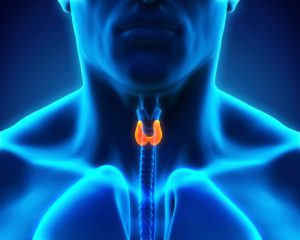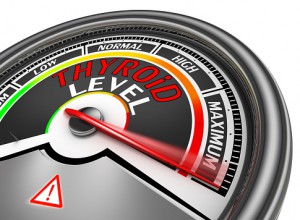 Your thyroid plays an important role in regulating your bodily functions, including those of the circulatory, nervous, digestive, and reproductive systems through the release of hormones into the bloodstream. When the thyroid experiences problems, it can disrupt these functions and negatively affect your entire body.
Your thyroid plays an important role in regulating your bodily functions, including those of the circulatory, nervous, digestive, and reproductive systems through the release of hormones into the bloodstream. When the thyroid experiences problems, it can disrupt these functions and negatively affect your entire body.
Thyroid disease in general is fairly common, with approximately 20 million people throughout the United States experiencing it in some form. It is more common in women than men across the board, but regardless of your gender, you may be more likely to develop thyroid disease if you already suffer from a chronic condition, take medication that is high in iodine, have previously been treated for a thyroid condition, are over the age of 60, or if it runs in your family.
Thyroid disease comes in a variety of forms; some of the most common types include hyperthyroidism, hypothyroidism, and thyroid cancer.
Hyperthyroidism: This condition, also known as overactive thyroid, occurs when your thyroid gland produces an excessive supply of hormones, leading to symptoms such as fatigue, a rapid or irregular heartbeat, mood swings, weight loss, and goiter, which causes your thyroid gland to become swollen.
Hypothyroidism: This form of thyroid disease occurs when your thyroid gland produces an insufficient amount of hormones to meet the demands of your bodily functions. It can cause fatigue, depression, dry skin and hair, a slowed heart rate, and fertility problems in women. Like hyperthyroidism, this condition can also cause goiter.
Thyroid cancer: This form of cancer typically occurs in people between the ages of 25 and 65 and is most common in people of Asian descent. Symptoms include a lump and swelling in the neck, pain in the front of the neck, difficulty swallowing and breathing, and a constant cough. While lumps in the thyroid are usually benign, you should see a doctor immediately if you notice one.
If you’re suffering from symptoms of a thyroid problem, you can schedule an appointment with an endocrinologist at Flushing Hospital Medical Center’s Ambulatory Care Center now by calling (718) 670-5486.
All content of this newsletter is intended for general information purposes only and is not intended or implied to be a substitute for professional medical advice, diagnosis or treatment. Please consult a medical professional before adopting any of the suggestions on this page. You must never disregard professional medical advice or delay seeking medical treatment based upon any content of this newsletter. PROMPTLY CONSULT YOUR PHYSICIAN OR CALL 911 IF YOU BELIEVE YOU HAVE A MEDICAL EMERGENCY.


